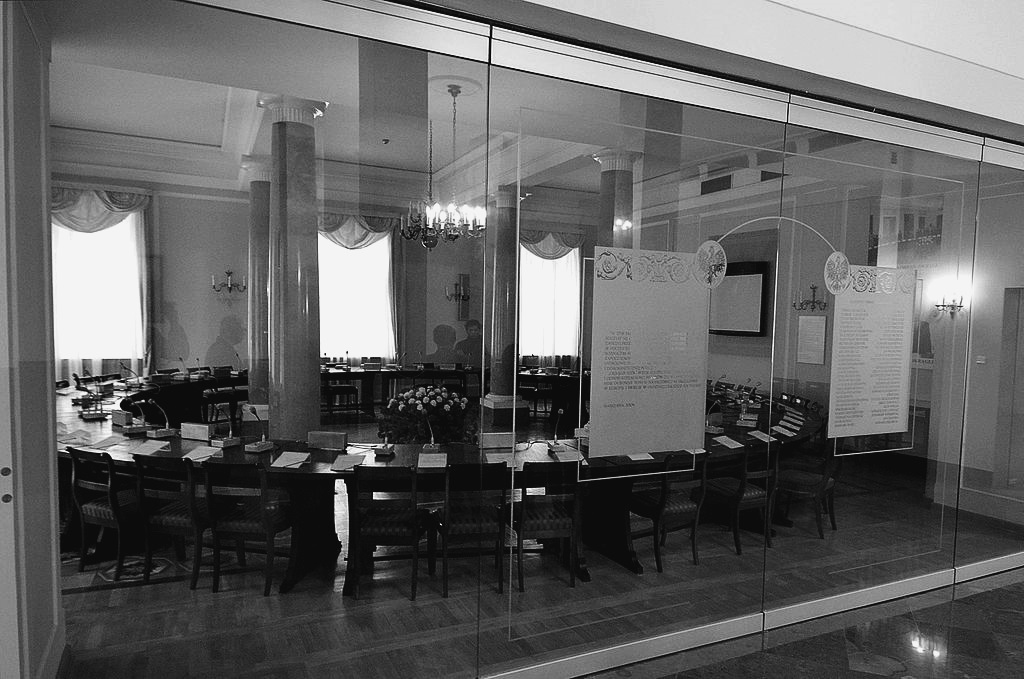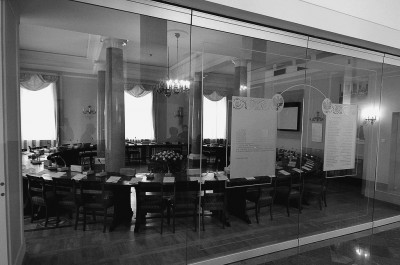The 25th anniversary of the Polish Round Table [that started the democratic transition] inspires to look back and reflect on what really happened in the spring of 1989. Perhaps this anniversary does not have to be only a thing of the past and a series of throwback celebrations? Or maybe the spirit and mechanisms of the Round Table give us a right to dream about a Poland in which we are able to reach an all-encompassing agreement on the most important state matters once again?
One evening in March I attended a debate with Adam Michnik* and Janusz Reykowski** entitled: ‘How were the Round Table talks possible?”. I was a bit reluctant to go there, since I thought that everything had been already said about the history of the Round Table. Moreover, the event took place just before the Russian annexation of the Crimea, and therefore deliberations about happenings from 1989 seemed to be somewhat “beside” what was really important at the moment. But exactly in the context of was going on in the East, I realized that in 1989 everything didn’t have to finish with a happy end, that there could have been no agreement after all. Maybe it is worth to reflect one more time on what really occurred, about the agreement, how it was possible and how that mode of thinking can be applied today.
‘The Round Table was possible because both sides were too weak to win but too strong to lose’, started Adam Michnik. Reykowski agreed, reminding that at the end of 1988, just months before the talks started, in the canteen of the Polish United Workers’ Party everyone talked only about when the system would collapse. Obviously, the Round Table was possible because Poland was immersed in a deep crisis and the wind of change was blowing throughout the world. However, as we know very well from both our own and foreign history, there is a long way from the moment in which we recognize our weak spots to the moment in which we make use of the historical chance offered to us.
The negotiations were on the verge of being canceled due to a disagreement regarding the illegal opposition’s delegation. The communist government did not want to allow the so called “extremists”, like Jacek Kuroń [one of the democratic opposition leaders; Minister of Social Policy 1989-90 and ’91-93] and Adam Michnik, to participate in the negotiations. But Lech Wałęsa did not agree to that: ‘Adam, it’s not because you’re so important to me but because they want to see all my cards before we have even started playing and I can’t accept that’ said Wałęsa to Michnik according to the latter one’s relation. Additionally, the communist side was pressed in time, wondering whether the more conservative party activists would overturn the ‘liberal’ leadership of the party. On every stage there were instants when the participants were only seconds away from getting up from the table and walking out, but one of the sides would always offer a compromise, sensing that there is a greater aim at stake.
The rest is history. The communist party wanted to drag the opposition into the parliament and to share the responsibility for the crisis. The [weak] Senate [reestablished after 50 years and elected in fully free elections according to the Round Table agreement] was a square peg in a round hole. Aleksander Kwaśniewski [communist politician and activist, President of Poland 1995-2005] suggested free elections; the idea was taken up by the Western media and it had to be carried out, since the government could not afford to bow out. Later, Reykowski sounded out Michnik in the hallway whether the opposition wouldn’t want to “assume power” in the country. Michnik published his [famous article] ‘Your President, Our Prime Minister’ in Gazeta Wyborcza. Tadeusz Mazowiecki [first non-communist PM, 1989-90] reportedly told him: ‘you write faster than you think.’ But it worked out.
The article was previously published in Krytyka Liberalna.
* Adam Michnik, historian, essayist, former dissident, a public figure and an intellectual, the editor-in-chief of Poland’s largest newspaper Gazeta Wyborcza. A legendary figure of the Polish anti-communist opposition, he was imprisoned, first after the 1968 March Events, then after the imposition of Martial Law in 1981.
** Janusz Reykowski, professor, member of the Politbiuro of the Polish United Workers’ Party.




